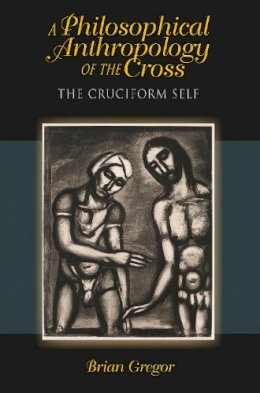
Stock image for illustration purposes only - book cover, edition or condition may vary.
A Philosophical Anthropology of the Cross: The Cruciform Self
Brian Gregor
€ 89.91
FREE Delivery in Ireland
Description for A Philosophical Anthropology of the Cross: The Cruciform Self
Hardback. Offers a bold and original view of what philosophical anthropology might look like Series: Indiana Series in the Philosophy of Religion. Num Pages: 278 pages, black & white illustrations. BIC Classification: HRAB. Category: (P) Professional & Vocational. Dimension: 5817 x 3887 x 19. Weight in Grams: 567.
What does the cross, both as a historical event and a symbol of religious discourse, tell us about human beings? In this provocative book, Brian Gregor draws together a hermeneutics of the self—through Heidegger, Gadamer, Ricoeur, and Taylor—and a theology of the cross—through Luther, Kierkegaard, Bonhoeffer, and Jüngel—to envision a phenomenology of the cruciform self. The result is a bold and original view of what philosophical anthropology could look like if it took the scandal of the cross seriously instead of reducing it into general philosophical concepts.
Product Details
Format
Hardback
Publication date
2013
Publisher
Indiana University Press United States
Number of pages
278
Condition
New
Series
Indiana Series in the Philosophy of Religion
Number of Pages
278
Place of Publication
Bloomington, IN, United States
ISBN
9780253006714
SKU
V9780253006714
Shipping Time
Usually ships in 7 to 11 working days
Ref
99-1
About Brian Gregor
Brian Gregor is a postdoctoral teaching fellow in the Department of Philosophy at Fordham University. He is editor (with Jens Zimmerman) of Bonhoeffer and Continental Thought: Cruciform Philosophy (IUP, 2009) and Being Human, Becoming Human: Dietrich Bonhoeffer and Social Thought.
Reviews for A Philosophical Anthropology of the Cross: The Cruciform Self
In the end, A Philosophical Anthropology of the Cross represents one of the first major Lutheran engagements with continental philosophy, and an excellent one at that. While the book is certainly not accessible to the layperson, it is accessible to pastors and teachers, and gives a helpful overview of the connections between major figures in continental philosophy and the trajectory ... Read more
